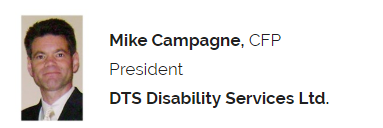Hurdles faced by parents applying on their own for the disability tax credit (DTC) for their child diagnosed with ADHD or a Learning Disability
I was very impressed by the recent fine article written by Jamie Golombek in the Financial Post.
Mr. Golombek cited a recent Tax Court of Canada case around the struggles a Calgary mother had when applying for the disability tax credit (DTC) for her son diagnosed with ADHD. The application was denied at several levels leaving only the Tax Court of Canada as a final place to appeal, a step almost no parent has the time and energy to undertake.
As the owner of a company that has spent the last 15 years representing families that have children with diagnosed cognitive challenges, this denied application story is one that I would estimate has been experienced by thousands if not tens of thousands of other Canadians. Many parents have been denied eligibility on applications for their children with cognitive challenges which can additionally include behavioral, social or mood disorders, OCD, and the more commonly diagnosed ADHD and Learning Disabilities. Addressing specifically the fiscal year 2016-2017 fiscal period Mr. Golombek noted that CRA reported mental functions applications saw approval rates of 81%.
Dramatically higher denial rates for child mental functions applications
However I can tell you as someone involved in challenging CRA denials of such applications, for child mental functions DTC applications the actual approval rates were much lower. During this period, my company was swamped with requests to consult to parents where their child’s mental functions application had been denied (this portion of our business increased several fold). Most mental functions applications are for seniors or elders (many suffering from dementia or Alzheimer’s) where I would estimate approval rates are virtually 100%. By lumping in the small portion of child mental functions applications for an overall approval rate of 81%, CRA hides the fact that my best survey of the 2016-17 fiscal year showed an approval rate for that period on child mental functions applications was less than 30%, something conveniently obscured by grouping such applications in with seniors.
To be clear I am saying that for that 2016-17 my best estimate is that 70% – or more – of child mental functions applications were being denied by CRA. In fact we consulted on numerous applications for a child diagnosed with autism that were denied eligibility after a parent applied on their own. Autism normally includes verifiable socially based marked restrictions so this clearly indicates an incredibly flawed assessment system at CRA. To the best of my knowledge we successfully challenged and overturned every single autism denial that was brought to our attention. In 100% of those autism diagnosed mental functions application denials brought to my company we proved the CRA decision was wrong and we forced CRA to reverse course and grant eligibility.
For the category of child applications in mental functions overall we were approached by numerous parents, and our finding was that 80% of such denials should be challenged, and when we consulted on such challenges we succeeded over 90% of the time in having the denial reversed and eligibility granted. While this is not a scientific sample it indicates clearly that most of the time (over 70%) when CRA denies a child mental functions DTC application the decision is wrong and can be reversed to eligible with the assistance of a tax specialist with expert knowledge. (CRA’s denial decision was also reversed to eligible in the Tax Court Case cited by Mr. Golombek).
And worse yet, we found in many such denials CRA directly violated the CRA mandate to administer tax law as legislated by Parliament and instead chose to deny applications using processes created by administrative personnel at CRA and never approved by Parliament. I am bound by confidentiality but can show a case where in early 2020 the CRA officer admitted (rather brazenly in a written letter) that a marked restriction was confirmed in the initial application. Based on tax rules as legislated by Parliament, the application should have been approved at this stage of the process. However eligibility was not granted by CRA but instead denied. CRA’s officer chose to instead ignore the Parliamentary prescribed application form and use an alternate system created at CRA (which is not within CRA’s legal mandate and an obstruction of Parliament’s tax legislation).
And I can tell you, this is not an isolated incident, and has been common practice at CRA for years in mental functions applications for children. CRA seems to constantly forget what the Tax Court of Canada Justices like G. Sheridan and D.G. Bowman explained in various rulings, that CRA cannot make tax law but instead has the role to administer tax law as made by Parliament. Only Parliament can make tax law, but CRA has recurrent amnesia on this fact when it comes to DTC applications for children based on impairments in mental functions.
Approved but receiving only a fraction of what is fair
As well, we found issues even within DTC applications that were approved where parents approached us to consult and review that their subsequent adjusted tax filings. These parents wanted to ensure they had maximized the benefits gained from an approval the parent had secured on their own. I would estimate roughly 75% were receiving benefits that totalled only a fraction of what their child’s circumstances warranted. So even when approved – most parents were shortchanged in gaining resources to support their child.
So doing the math, I would estimate that something like 10% of parents applying on their own gained a rightful level of eligibility granted during this specific period. This is a fair system?
Unfortunately the bad news doesn’t end with pointing out that possibly 90% of parents applying on their own during this specific period were being short-changed in efforts to gain maximum resources to help their children.
Approved but parent did not apply properly to gain all benefits and supports
Approval for the DTC adds financial supports that provide for the widest range of therapies, tutors, or other interventions to maximize their child’s future prospects. The challenge here is that the few parents that had successfully navigated to a rightful level of approval did not understand how to complete all the requests or special provisions required to gain the resources based on the approval. CRA will do only basic initial transfer calculations for the parent and notify that parent to research other potential benefits (often just the tip of the iceberg) and then notify parents to research other possible benefits. However, most parents do not have the tax expertise or professional help to ensure all such avenues have been explored and gained when eligible.
Significant overlooked resources after DTC eligibility is granted – common
A real life example from that timeline: A single Mother asked me to review tax filings after her child was approved for the DTC retroactive to birth a couple of years previously. When I reviewed her returns, which had been adjusted with the assistance first of CRA and then an accountant, this client had missed out on almost $20,000 in underutilized tax credit transfers. She was low income and her accountant didn’t understand that unused DTC transfers might be accessed under supporting relative rules through a parent or other qualifying relative that provided substantial support and had sufficient income to utilize these DTC transfers. Verifying the supporting relative designation can be a complex situation which requires pre-approval via specialized knowledge that very few accountants or tax professionals understand. With approved DTC eligibility there are often additional programs that require pre-approvals sometimes enlisting taxpayer relief provisions to fully utilize.
Can a parent that received less than their fair share of eligible resources, still recover those lost financial resources through a competent tax professional with the required expertise? Sometimes yes, other times no.
Approved but for less than fair eligible resources
Let’s look at the example of an approved child who was granted less years of eligibility than marked restrictions warranted. The fact is it’s really hard to challenge an approval. In some fraction of cases we have been able to get additional years granted and resources recovered but often that’s not viable due to time expiry or the challenges of documenting prior years after an approval.
When being denied eligibility is a good thing?
Now we turn to wrongful denials of eligibility for a child with an application based in mental functions. To be clear I am referencing where a parent had applied on their own, been denied and then asked us to review whether that decision was valid or could be challenged. Here, parents were often presented with a counter intuitive explanation: that they had actually had a better outcome in being denied than if they had been approved, at least now that my company DTS was involved. Please let me explain. We often found that had the parent’s child been approved based on the initial report this would gain only a fraction of proper years of eligibility.
By doing extensive analysis summarizing results of psycho-educational assessments or other medical reports relevant to eligibility criteria, and conducting thorough parent interviews covering a child’s history from birth to present, a denial may be reversed and also gain additional years of eligibility. We were often able to substantiate history to build the case to add more years of eligibility in a denial challenge or new application. In fact, most parents ended up with far more resources even after taking into account our consultant fees than they would have had their child been initially approved with the parent’s original application that was denied.
Special factors that are vital to review prior to applying for the DTC
There are also numerous factors that need to be considered before making an application to ensure access to approved benefits subsequent to an approval. These can include prior marital status changes, any previous bankruptcy, and child support arrangements, as well as a review of recent tax filings. If such items aren’t reviewed prior to an application, possibly the wrong or even an ineligible parent would apply for their child for the DTC and significant resources lost. All these matters must be considered and can involve many hours of research.
In summary: there are many potential hurdles faced by a parent in applying for the DTC for their child with a challenge in mental functions. Expert professional assistance prior to apply can make a world of difference in the outcomes and resources gained to support a child.
In a more perfect world the government would pay for the consulting services for someone like myself to help a parent assess what were fair eligible support levels to their child with a diagnosed cognitive challenge. Don’t expect this anytime soon. And a reality that parents have to understand is that a portion of children diagnosed with a cognitive challenge simply do not have circumstances that rise to the level of a marked restriction. However, every parent with a child with a diagnosed mental challenge could benefit from accessing competent expert review from an experienced professional in the DTC field, prior to making an application.
*The preceding is not to be considered financial advice and reflects the opinion of the writer. Please consult a tax professional that understands your financial circumstances in all your personal tax matters. If you think you might have received an improper denial at the hands of the CRA in a mental functions DTC application for your child please contact us at 604-415-5311 or email me directly at my business email plan4u@shaw.ca . Mike Campagne CFP, BA
Mike Campagne CFP, BA
President
DTS Disability Tax Services Ltd.



